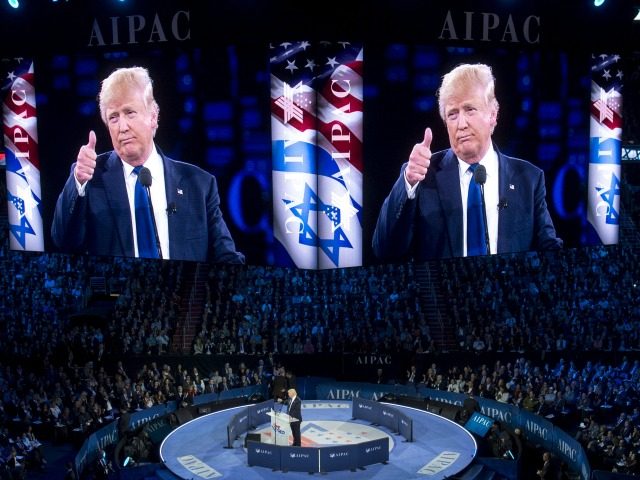The American Israel Public Affairs Committee (AIPAC) begins its annual policy conference Sunday in unusual circumstances.
First, the organization has been the target of antisemitic attacks by a member of Congress, Rep. Ilhan Omar (D-MN). Second, it is being boycotted by left-wing groups that are claiming credit for persuading Democratic presidential candidates to avoid the conference (though few attend in non-election years anyway).
Saikat Chakrabarti, the chief of staff and political strategist for “phenom” Rep. Alexandria Ocasio-Cortez (D-NY), put the two together late last week and congratulated Omar, effectively, for using antisemitic rhetoric to accomplish the boycott. The fact that Democrats celebrate such tactics, rather than punishing them, is a new and dangerous watershed in American politics. And it is a sign that AIPAC’s traditional façade of bipartisanship is badly damaged.
Third, President Donald Trump just announced the U.S. recognizes Israel’s claim to the Golan Heights, the high ground Israel took from Syria in the defensive Six-Day War in 1967, ending the shelling of Israeli civilians and creating a strategic buffer vital to the country’s survival during the Yom Kippur War of 1973. Trump’s acknowledgment was a win for Israeli prime minister Benjamin Netanyahu — and a setback for Iran and Russia.
Add the Golan Heights to the major milestones Trump has achieved for the U.S-Israel relationship in the past year, including the moving of the U.S. embassy to Jerusalem, and the withdrawal from the Iran nuclear deal. These were policy priorities for AIPAC, but Trump achieved them without AIPAC’s support — and, in some respects, despite AIPAC’s opposition. (AIPAC offered a cringe-worthy apology to then-President Barack Obama after Trump criticized him from the podium at the 2016 policy conference, and some delegates in the audience applauded.)
Aside from supporting a close U.S.-Israel alliance in general, the last major unachieved policy priority for AIPAC is a peace deal between Israelis and Palestinians. The Trump administration is set to announce its plan after the April 9 elections in Israel. AIPAC’s only path back to political relevance, and bipartisanship, is to support Trump’s plan.
And so, ironically, the group reviled by the left for backing Israel, and defamed by the left-wing radicals at J Street for being lukewarm towards a two-state solution, will be the most important voice for peace in Washington, DC.
Or rather, it could be — if AIPAC stops trying to avoid the appearance of being too pro-Trump, and acknowledges the undeniable fact that Donald Trump has been the most pro-Israel president in the history of the U.S.
Joel B. Pollak is Senior Editor-at-Large at Breitbart News. He is a winner of the 2018 Robert Novak Journalism Alumni Fellowship. He is also the co-author of How Trump Won: The Inside Story of a Revolution, which is available from Regnery. Follow him on Twitter at @joelpollak.

COMMENTS
Please let us know if you're having issues with commenting.